A little goes a long way to help Tibetan Buddhist nuns in India.
In this blog post, we want to share with you the cost of basic food items at the largest nunnery we support in India so that you can see the impact of your support. In this blog, we take you inside the kitchen at Dolma Ling Nunnery and Institute, home to almost 400 nuns and staff.
Rice
Rice is a staple food for the nuns in all the Tibetan Buddhist nunneries we support in India. One of the most common meals for Tibetans in exile is rice and dal. This simple dish is nutritious and inexpensive. A huge bag of rice costs 640 Indian rupees or just under $9. Each day at Dolma Ling Nunnery and Institute, the nuns use about 1.5 bags of rice to feed close to 400 nuns and staff.
$12/day feeds rice to 350 nuns
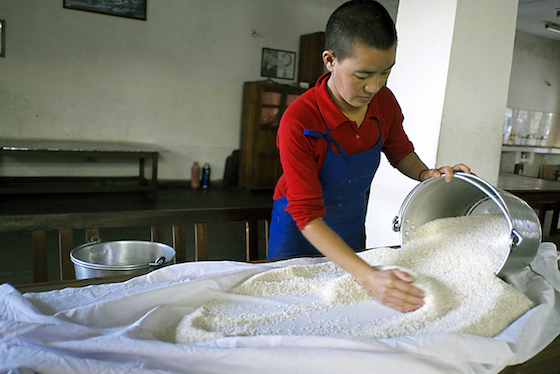
A nun on kitchen duty at Dolma Ling checks rice. Photo courtesy of Brian Harris.
Flour
Flour, like rice, is used daily at the nunneries to make bread, noodles, and steamed buns. An 88 pound (40 kg) bag of flour costs just over $12 and is enough to feed over 300 people.
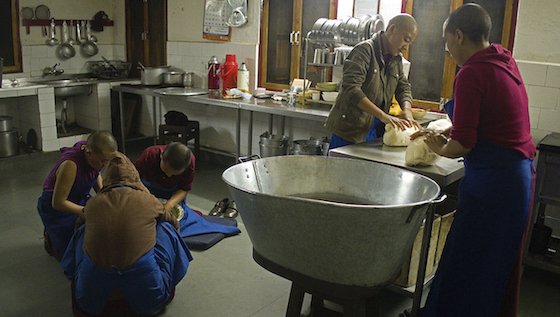
This summer, donors kindly helped the nuns at the two largest nunneries we support, Dolma Ling and Shugsep, purchase dough-making machines. Until now, the nuns would have to knead dough by hand.
$12/day provides 350 nuns with flour
Potatoes
All the nunneries have a vegetarian diet and potatoes are important staple food. Just a small monthly donation to the Tibetan Nuns Project feeds hundreds of nuns in a day. For instance, a 110 lb (50 kg) bag of potatoes costs just $14 and will feed a lot of nuns. We are extremely grateful to everyone who sponsors a nun and also to those donors who give monthly at any amount they choose. As you see, even $5 a month helps feed hundreds of nuns.
$14 buys 110 lbs of potatoes
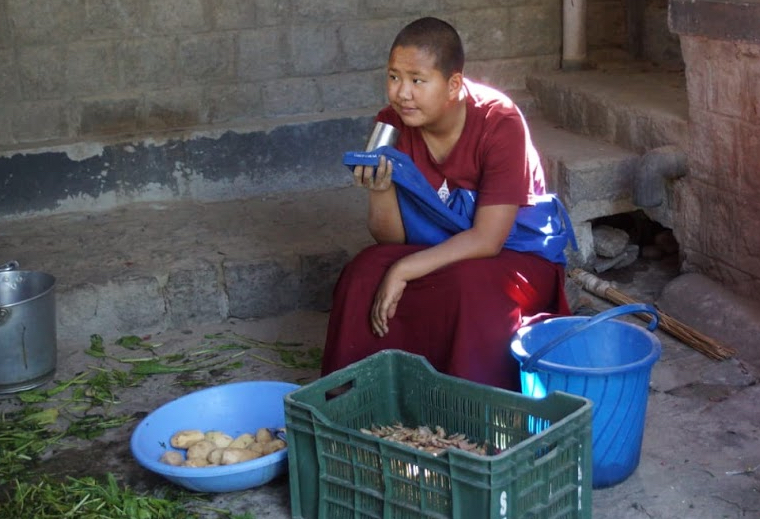
A nun on kitchen duty at Dolma Ling Nunnery pauses from peeling potatoes. There are about 350 nuns at the nunnery so that means a lot of peeling! Photo by the Dolma Ling Media Nuns.
Onions
Some Buddhists follow a strict diet that avoids aliums including onions, garlic, and chives. However, Tibetan Buddhists do use onions and garlic in their cooking, especially in exile in India and Nepal. A 55 lb bag of onions (25 kg) costs $10.
$10 buys 55 lbs of onions
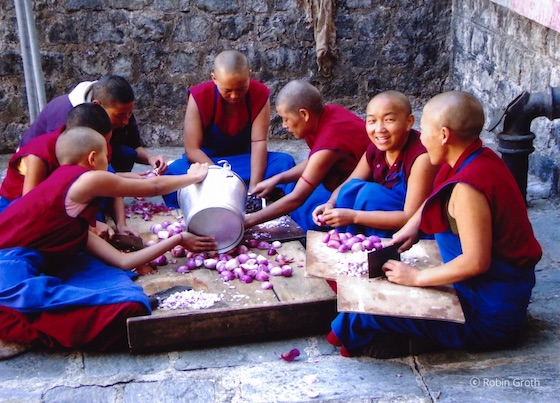
Tibetan Buddhist nuns at Dolma Ling Nunnery and Institute chopping onions ⓒ Robin Groth
With COVID, the nuns have not been shopping in the same way as before because it was unsafe to go to the market. Instead, during the lockdown times, they had supplies such as vegetables delivered to the gates of the nunnery where they would be sanitized and then stored in the storage room shown below.
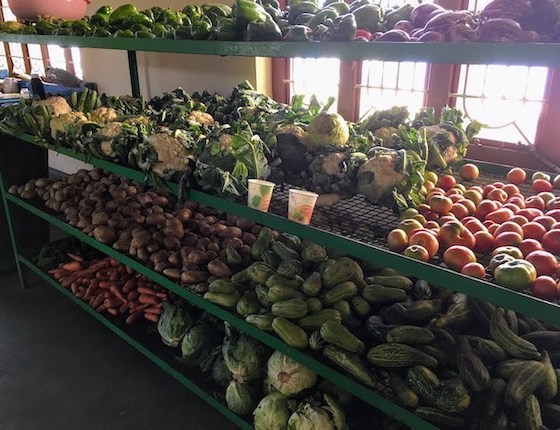
Vegetables in the storeroom at Dolma Ling Nunnery and Institute in India. The nunnery is home to about 350 Tibetan Buddhist nuns and they have a vegetarian diet, so lots of vegetables are needed.
Thank you again for helping the nuns!
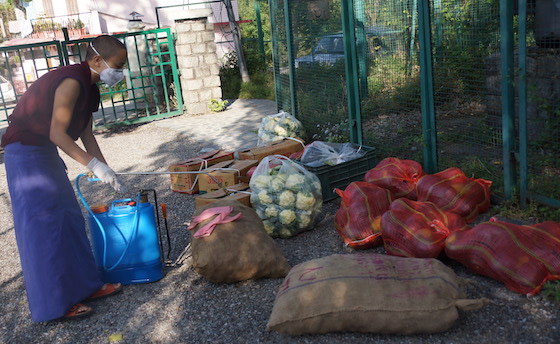
Bags of vegetables outside the gate of Dolma Ling Nunnery during the COVID lockdown in 2020

Daal Bhat! One of my favorite Nepali meals!
I’m very grateful to contribute with a very small part of what the nuns require for daily life. Thank you for letting me help a little bit.